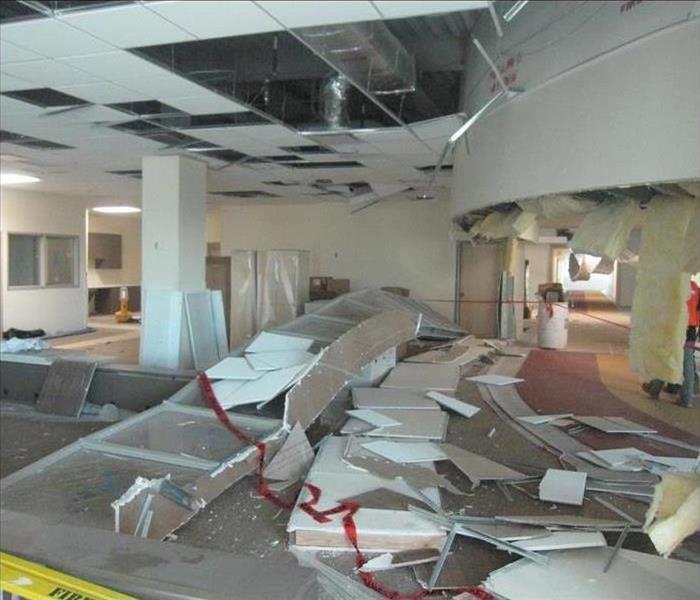5 Critical Questions To Ask When Creating a Continuity Plan
4/10/2021 (Permalink)
Five Critical Questions
When storms threaten to wreak havoc in Oklahoma Christian University, OK, there is often only a short window of time to make important decisions and prepare your property, personnel and operations for a significant disruption. If the situation is severe, you may even need to evacuate the area. That's why you need to develop and practice a business continuity plan before disaster strikes. To begin, address these five critical questions.
Who?
Perhaps the most important thing to establish first is the chain of command:
- Who makes the critical in-the-moment decisions?
- Who will be in charge if you are not available?
- Who are your team leaders in an emergency?
- Who will report incidents and assess any storm damage?
- Who are the clients and vendors that need to be contacted right away?
- Who will you contact if there is a need for flooding cleanup and restoration?
What?
What will be your strategies to mitigate loss and recover functionality after an interruption? Your continuity plan should include an analysis of your business's most important functions, how much downtime is acceptable and what specific areas are vulnerable in an emergency.
When?
You'll also need to determine at what point you will evacuate and move your operations elsewhere. Will you leave preemptively, or will you wait until directed by local officials? Also, at what point will you know you can return or resume normal business operations?
Where?
Where will you go if you need to relocate temporarily or for a longer period of time? Where will your equipment be stored if you wait to resume operations until your permanent location is ready? Will working remotely from home be an option until things get back to normal?
How?
Once you have the basic questions answered, outline the specific steps you will take from beginning to end. Like fire drills, your continuity plan should be practiced regularly and updated as your situation changes. Everyone should feel confident that they know what to do when the time comes.
Fortunately, most storms give you some lead time to move your plan into action, but not all-natural disasters can be forecasted. Having a thorough and practiced plan in place will help your business survive and bounce back sooner when emergencies happen.



 24/7 Emergency Service
24/7 Emergency Service
